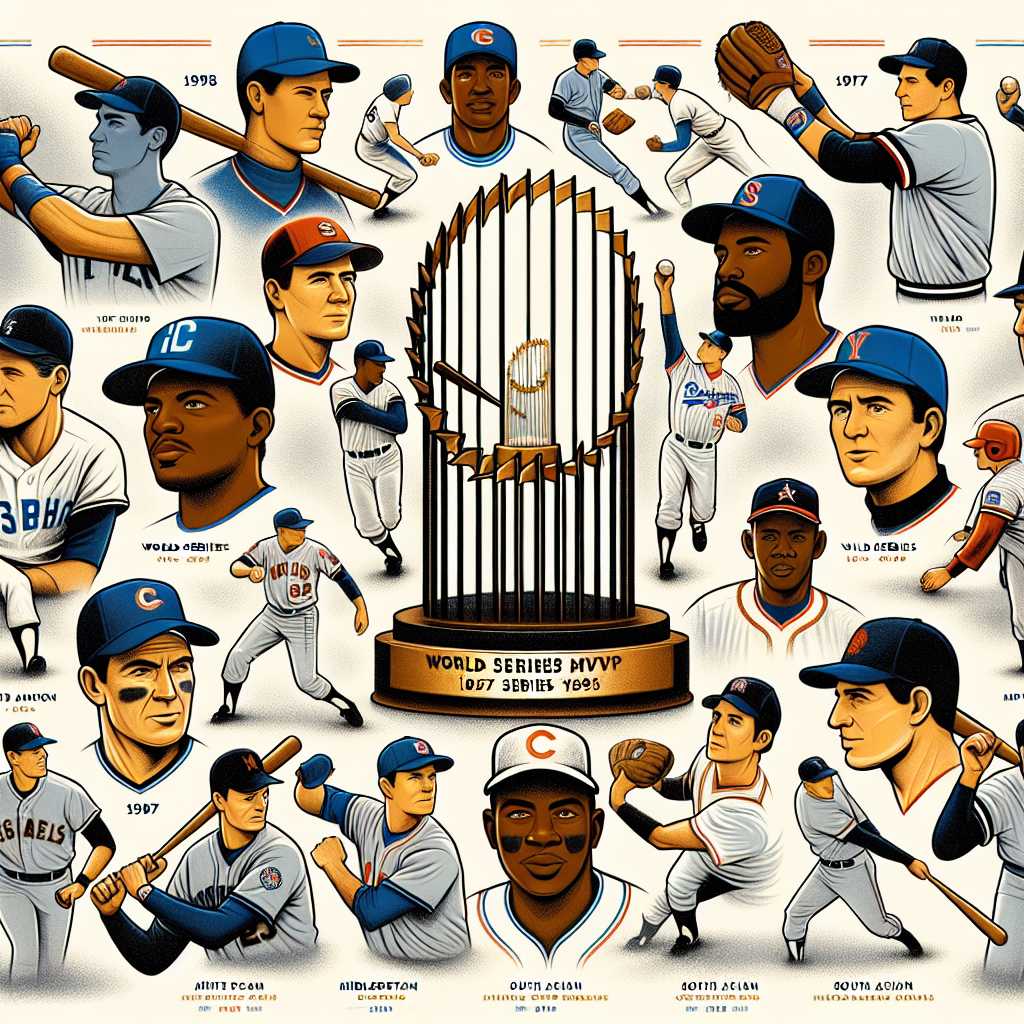### World Series MVP: A Symbol of Baseball Excellence
The Most Valuable Player (MVP) Award in the World Series stands as a testament to exceptional performance in one of sport’s grandest stages. The World Series itself is an event steeped in the rich traditions of baseball, where champions of the American League (AL) and National League (NL) come head-to-head to battle for the prestigious Commissioner’s Trophy. Each year, the performer who rises above the rest, helping to lead his team to glory, is honored with the World Series MVP award. This article delves into the history and significance of the World Series MVP, its transformative impact on players’ legacies, various notable winners over the years, trends, statistics, and little known facets of this distinguished accolade.
Origin and Historical Significance of the World Series MVP Award
The inception of the World Series MVP Award goes back to 1955 when it was created to recognize the most outstanding player in that year’s World Series. Unlike regular-season MVP awards, which consider a player’s performance throughout the season, the World Series MVP honors a player for outstanding contributions made during the final and decisive stage of baseball’s postseason.
Award Selection Process
Deciding who takes home the World Series MVP is commonly conducted via a committee of writers and officials present at the penultimate game. Their choices reflect not only statistical prowess but also timely contributions such as clutch hitting, dominant pitching performances, and superlative defensive plays which often swing the momentum of games in favor of the victor.
Transformative Impact on Players’ Careers
Winning a World Series MVP can be a career-defining moment for a player. It has often propelled players to heightened fame and cemented their status among the greatest to play the game. In some cases, it competes with admission into the Baseball Hall of Fame as a signal of a player’s seismic impact on the sport.
Notable Winners Throughout History
This section outlines some outstanding winners whose performances in the World Series were etched into baseball lore. The pantheon of greats includes legends like Sandy Koufax, Bob Gibson, Reggie Jackson, and Derek Jeter—each embodies a narrative of triumph that remains unrivalled.
Award Trends Over Time
Over decades, trends can be observed in which types of players or positions receive recognition as MVP. There’s also attention given to repeated winners and correlation—if any—with regular season performance or hall-of-fame careers.
Unique Stories and Lesser Known Facts
This portion explores unique circumstances, such as a player from the losing team earning MVP honors, or awardees who had otherwise unremarkable careers except for their fabled World-Series performances.
The Evolving Role of Numbers
In modern times where analytics play an increasingly significant role in sports evaluations, this section showcases how advanced metrics beyond the traditional batting averages or win-loss records are taken into consideration for deciding an MVP.
